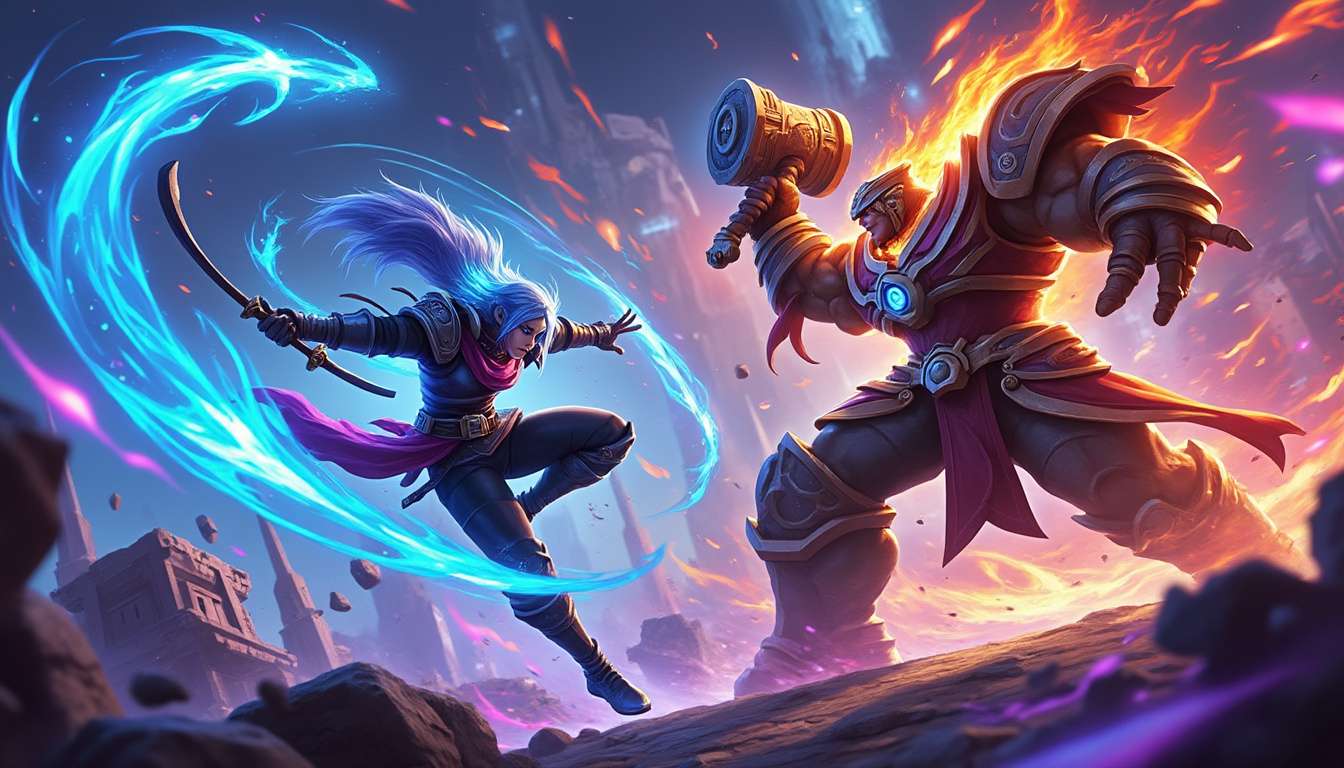The free-to-play fighting game 2XKO, set in the League of Legends universe, has entered Closed Beta nearly six years after its initial reveal as Project L. Riot Games’ producer Tom Cannon has shed light on the reasons behind the extended development and the decision to return to the drawing board after the first teaser. Despite hopes that the reveal would electrify fans, the reaction was more cautious, prompting a reassessment of the game’s direction to better capture the strategic depth expected from a League of Legends fighter.
Why Riot Games Delayed 2XKO After Project L Reveal
The initial announcement of the fighting game, then known as Project L in 2019, generated significant buzz as Riot Games aimed to expand their flagship franchise into the genre dominated by titles like Street Fighter by Capcom, Tekken by Bandai Namco, and other Arc System Works fighters. However, according to Tom Cannon in an interview with Edge Magazine, the response was subdued, with players showing interest but not the overwhelming excitement anticipated.
- Initial gameplay resembled traditional 2v2 fighters and was compared to Tekken or Mortal Kombat, but with League of Legends champions.
- Lack of unique combat synergy meant the game didn’t yet reflect the cooperative champion interactions central to League of Legends.
- Player feedback highlighted missing innovative strategic elements expected from Riot’s approach.
These factors led the development team to halt the original version and restart research and development to better align with the strategic fantasy fans wanted.
Incorporating League of Legends Strategy Into Fighting Gameplay
Cannon explained that Riot Games wanted 2XKO to go beyond traditional fighting mechanics by embedding champion synergy and team composition strategy into the core of gameplay. Unlike standard fighters focused mostly on individual skill, 2XKO aims to replicate the collaborative dynamics of League of Legends PvP combat but in a tag-team fighting format.
- Champion synergy is key – using combined abilities and coordinated team attacks.
- Tactical decisions in tag selection mirror strategic picks from the MOBA setting.
- Innovative game mechanics are designed to refresh the fighting genre, by integrating MOBA-style cooperation.
This approach diverges from models used by veteran franchises like Bandai Namco’s Tekken or Capcom’s Street Fighter, putting Riot’s unique spin on competitive fighting games.
What 2XKO’s Closed Beta Means for Players and the Fighting Game Scene
After years of secrecy and iterative changes, 2XKO finally entered Closed Beta on PC in 2025. Though no firm release date has been announced, this phase allows Riot Games to gather crucial player data and feedback to refine game balance and mechanics. The beta’s availability is an important milestone for the title as it seeks to establish a foothold amid esports giants like the Evo Championship Series.
- Closed Beta access on PC provides Riot with essential real-world testing data.
- Gameplay balance is being continuously adjusted based on player experiences.
- Expectations for releases on Xbox Series X and PS5 later in the year.
In the broader scope, 2XKO presents an opportunity for Riot to compete within the fighting game community alongside Arc System Works’ Guilty Gear titles and Bandai Namco’s Tekken series, potentially redefining esports fighting lineup diversity.
Challenges Riot Faces in Entering a Crowded Fighting Genre
Moving into the fighting game arena is not without hurdles. Riot Games must differentiate 2XKO from entrenched series like Tekken and Street Fighter while appealing to both League of Legends fans and fighting game enthusiasts.
- Navigating player expectations shaped by classic fighting mechanics versus League’s strategic elements.
- Balancing champion roster to create fairness while maintaining character uniqueness, a challenge also tackled by games like Guilty Gear.
- Building competitive esports infrastructure to enable 2XKO’s inclusion in major events akin to the Evo Championship Series.
Riot’s transparent approach to development and engagement with players during the beta reflects a commitment to meeting these challenges head-on.
Additional Riot Games Projects Enhancing the League of Legends Universe
Alongside 2XKO, Riot continues to expand the League of Legends ecosystem through diverse projects engaging the community in multiple ways.
- Riftbound, the trading card game, has spurred a pre-order rush fueled by fans eager for new League content.
- In-depth explorations of player culture help Riot tailor future esports and game updates.
- AI-driven cinematics and storytelling enrich the lore surrounding champions.
These initiatives illustrate Riot’s holistic strategy to keep League of Legends relevant and vibrant in the constantly evolving gaming landscape.

